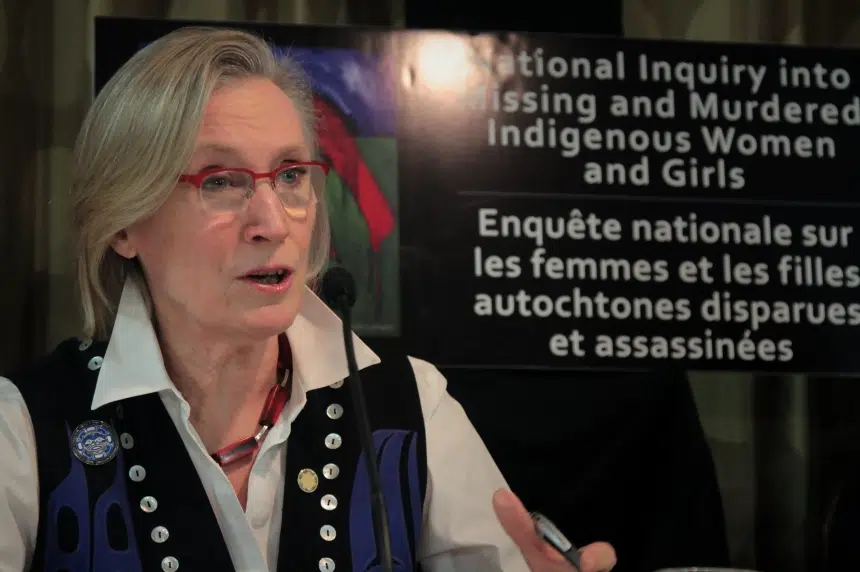Saskatoon families of missing and murdered indigenous women expressed concerns about an ongoing feeling that their lives have no value at a meeting with federal ministers Wednesday.
Minister of Indigenous and Northern Affairs Carolyn Bennett and Minister of Justice Jody Wilson-Raybould met with victims’ families to hear their stories and take suggestions ahead of an inquiry into missing and murdered indigenous women. The meeting is part of an 18-city series of discussions meant to provide the blueprint for the inquiry.
“(They feel) it’s not valued by the police, by the justice system, it’s not even valued in getting an autopsy in a timely way,” Bennett said following the morning’s private, circle-style discussion.
Though rooted in treatment of indigenous peoples as far back as Canada’s settlement, recent concerns of carding, racism, and indigenous portrayals in the media have all contributed to a sense of worthlessness among aboriginal individuals, according to Darlene Okemaysim-Sicotte
Okemaysim-Sicotte was among those who shared their experiences.
“There was a lot of tears, a lot of anguish, a lot of first-time families speaking. It took a lot of courage and vulnerability to share really personal, tragic stories. It wasn’t easy,” she said.
A visibly solemn Wilson-Raybould described the issue as a national tragedy and expressed renewed commitment to ensuring the voices of the families are heard across the country.
“In order to achieve justice, you need to understand and feel injustice. That’s where I believe fundamentally our opportunity is as a country to understand or at least seek to appreciate the reality that exists for indigenous peoples,” she said.
Both ministers expressed awe at the scope of the inquiry, from addressing victims and causes, to the consequences for family members such as children left behind. Bennett said the challenge will be finding a balance between too narrow a scope, as was complained about during the Pickton Inquiry, and too broad, which would dilute the ability to create concrete action.
“If the families feel that they’ve been properly listened too and they can see their finger print on the blueprint of the inquiry, we will feel we’ve done well,” Bennett said. “We know we won’t be able to please everybody, but they need to know they were heard.”
Despite feelings of pain and abandonment spanning generations, Okemaysim-Sicott said indigenous communities still want to “extend peace and friendship with the greater Canadian society.”
“They really do want to believe what the ministers are trying to do will work. They want to be part of the process and they don’t want any stones unturned,” she said.
The ministers will now travel to Edmonton for more discussions on Thursday.







